Meet Our Speakers
PURA Syndrome 2025 Conference
Scientists. Researchers. Clinicians. Experts in the Field. Fellow participants. We have an exciting array of speakers and topics to offer! Learn more about our presenters from their photos and bios below.
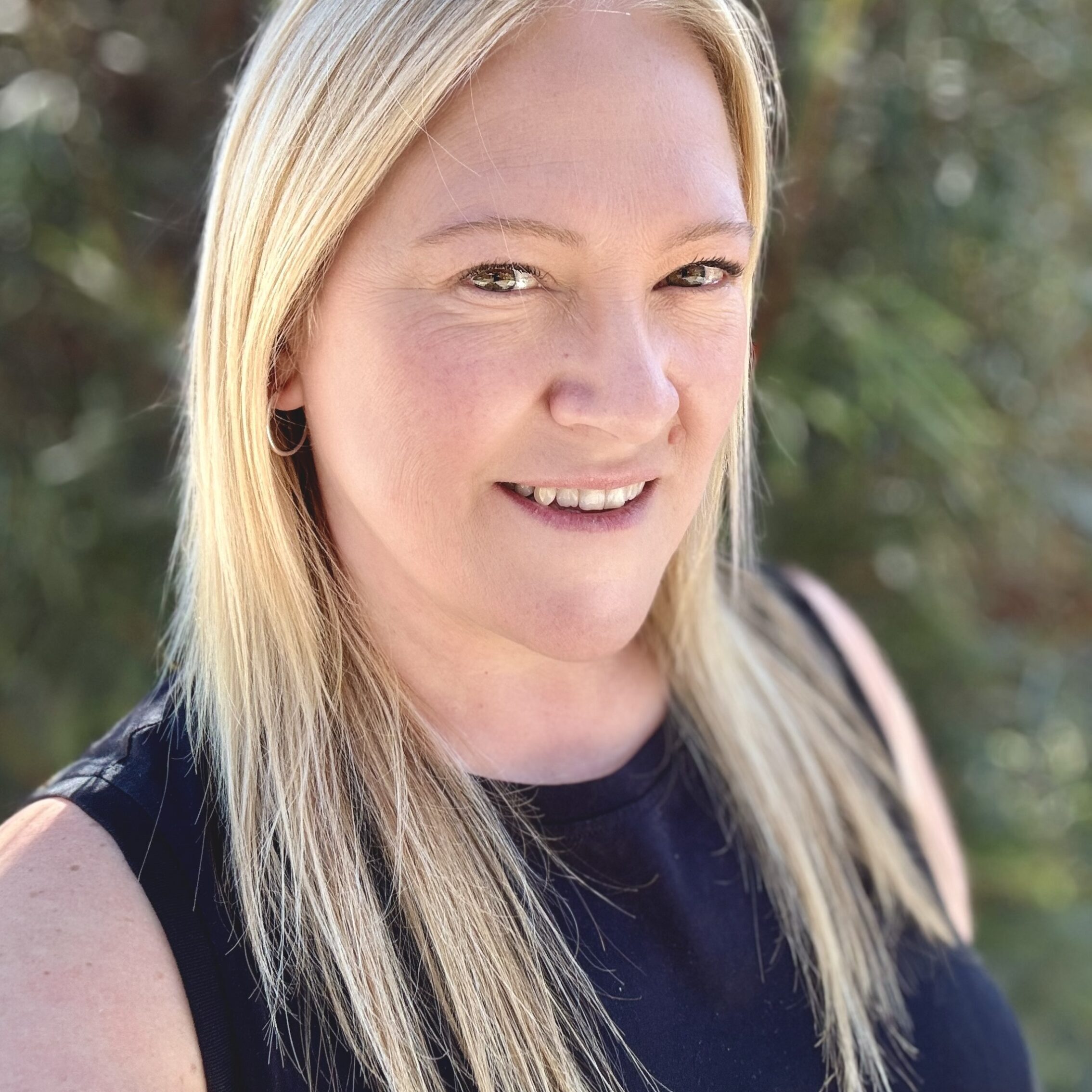
Mel Anderson
Mel Anderson is the Director and Chair of the PURA Foundation Australia, a volunteer non-profit organisation dedicated to supporting individuals and families affected by PURA syndrome across Australia and New Zealand. Her involvement with the foundation is deeply personal; Mel’s daughter, Sarah, was the first Australian diagnosed with PURA syndrome in 2014. Through her involvement with the PURA Foundation Australia, Mel has been a driving force in advancing research focused on understanding and treating PURA syndrome. The foundation supports studies that aim to deepen clinical knowledge, drive translational epilepsy research, and offer meaningful insights for patients and their families.
In addition to her leadership role in Australia, Mel served as a founding board member of the PURA Syndrome Foundation and held the position of Research/Scientific Liaison from 2015 to 2019, where she played a key role in developing a global research network for PURA syndrome and supporting both clinical and scientific research efforts. Through her leadership and advocacy, Mel continues to make significant contributions to the international PURA syndrome community, striving to improve the lives of those affected by this rare neuro-developmental disorder.
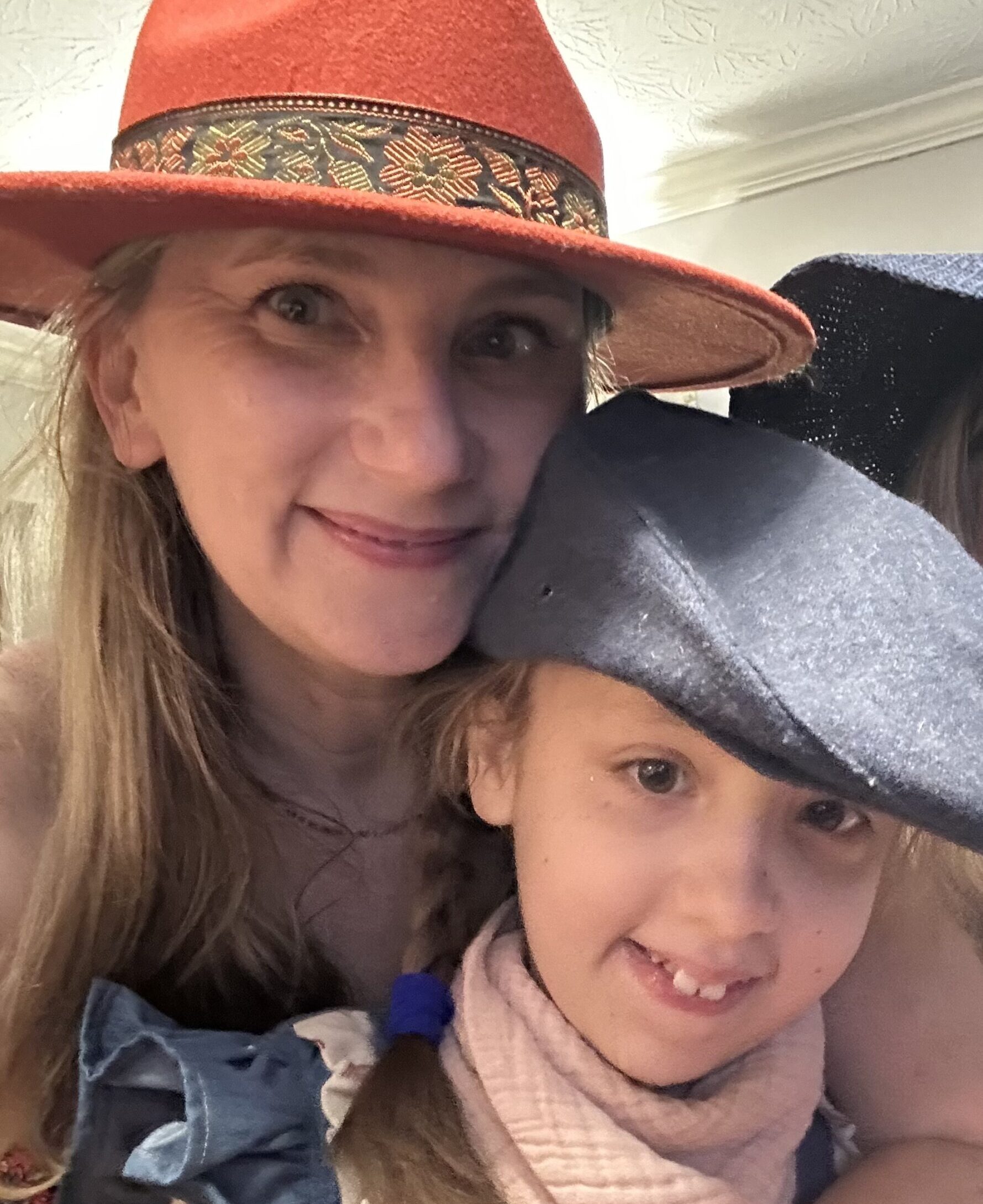
Sarah Bloom Anderson
Sarah Bloom Anderson is mother to Audrey Anderson, a smart, beautiful 13 year old. When Audrey was diagnosed with the first group of PURA Syndrome patients in 2015, she worked with a handful of other families to create the Parents of PURA Syndrome Facebook group. Within a year, they founded the PURA Syndrome Foundation. Recently, she has been involved with the Foundation’s work to create a PURA Syndrome clinician’s network. In her professional life, Sarah is an environmental lawyer. After a decade of litigating at the Ohio Attorney General’s Office, she is now serving as the Assistant Director of Policy at the City of Columbus, Public Utilities.

Sirisak Chanprasert, M.D.
Dr. Sirisak Chanprasert, is a board certified physician at the Kidney Genetics Clinic and the Center on Human Development and Disability at UW Medical Center.
Dr. Chanprasert is a medical geneticist. He strives to create active partnerships with his patients to achieve the best possible outcomes.
Dr. Chanprasert earned his M.D. from Mahidol University in Thailand. He is one of very few physicians who is triple board certified in Internal Medicine, Medical Genetics and Medical Biochemical Genetics.
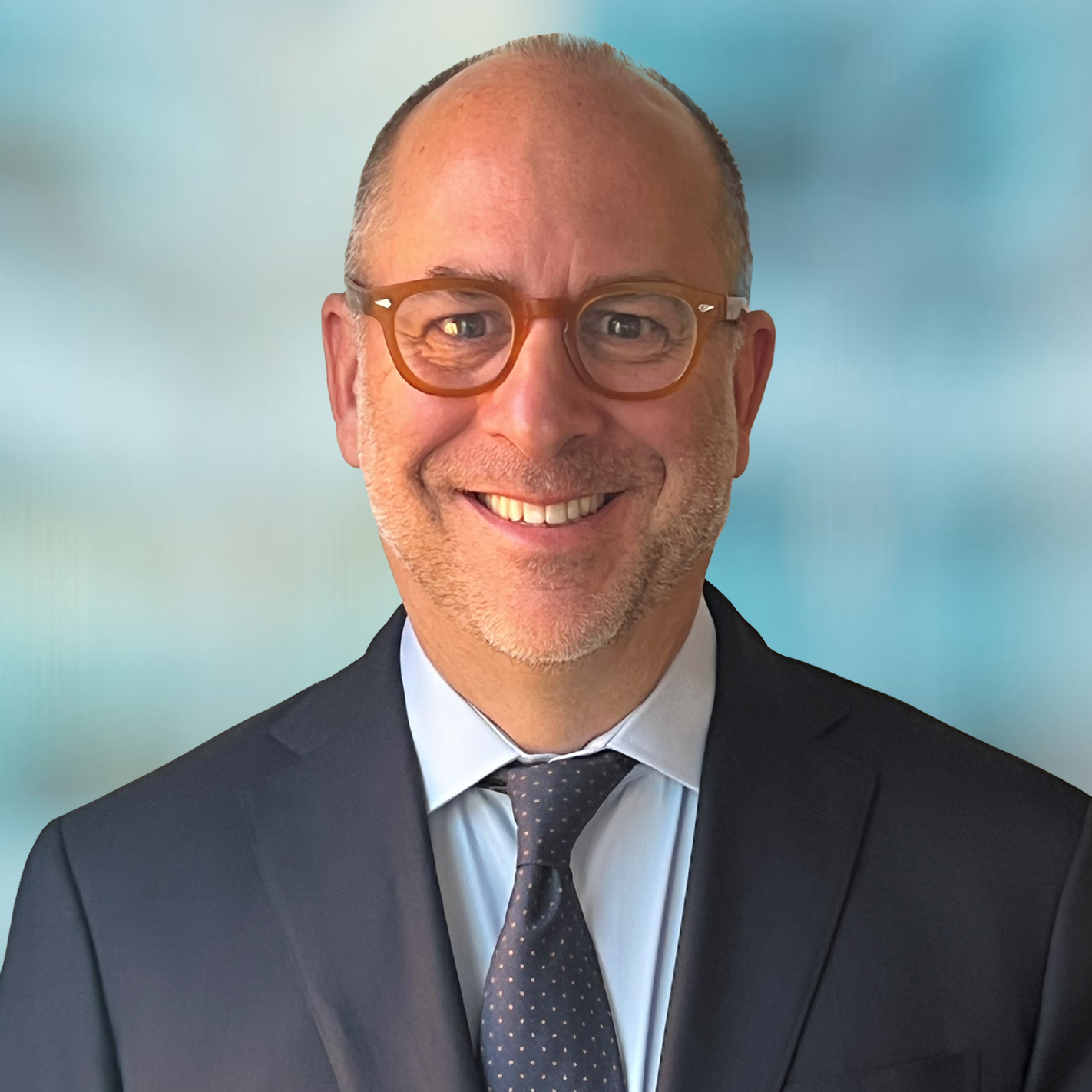
Kyle Czepiel

Patricia Evans, MD, PhD
Dr. Patricia Evans is a Dallas-based Pediatric Neurologist specializing in Neurodevelopmental Disabilities. She completed her medical education at Texas Tech University Health Sciences Center School of Medicine in 1983, followed by pediatrics residency and fellowships in neurodevelopmental disabilities and child neurology. Dr. Evans holds a Ph.D. in Psychology and has been a professor at the University of Texas Southwestern Medical School since 2007. She directs one of only 7 Neurodevelopmental Disabilities Residency programs in the country. She has expertise in areas including child neurology, autism, traumatic brain injury, neurodevelopmental disabilities, and critical care medicine. Her notable publications focus on autism spectrum disorder and related conditions. Dr. Evans has conducted clinical trials such as the use of Buspirone for treating young children with autistic disorder.
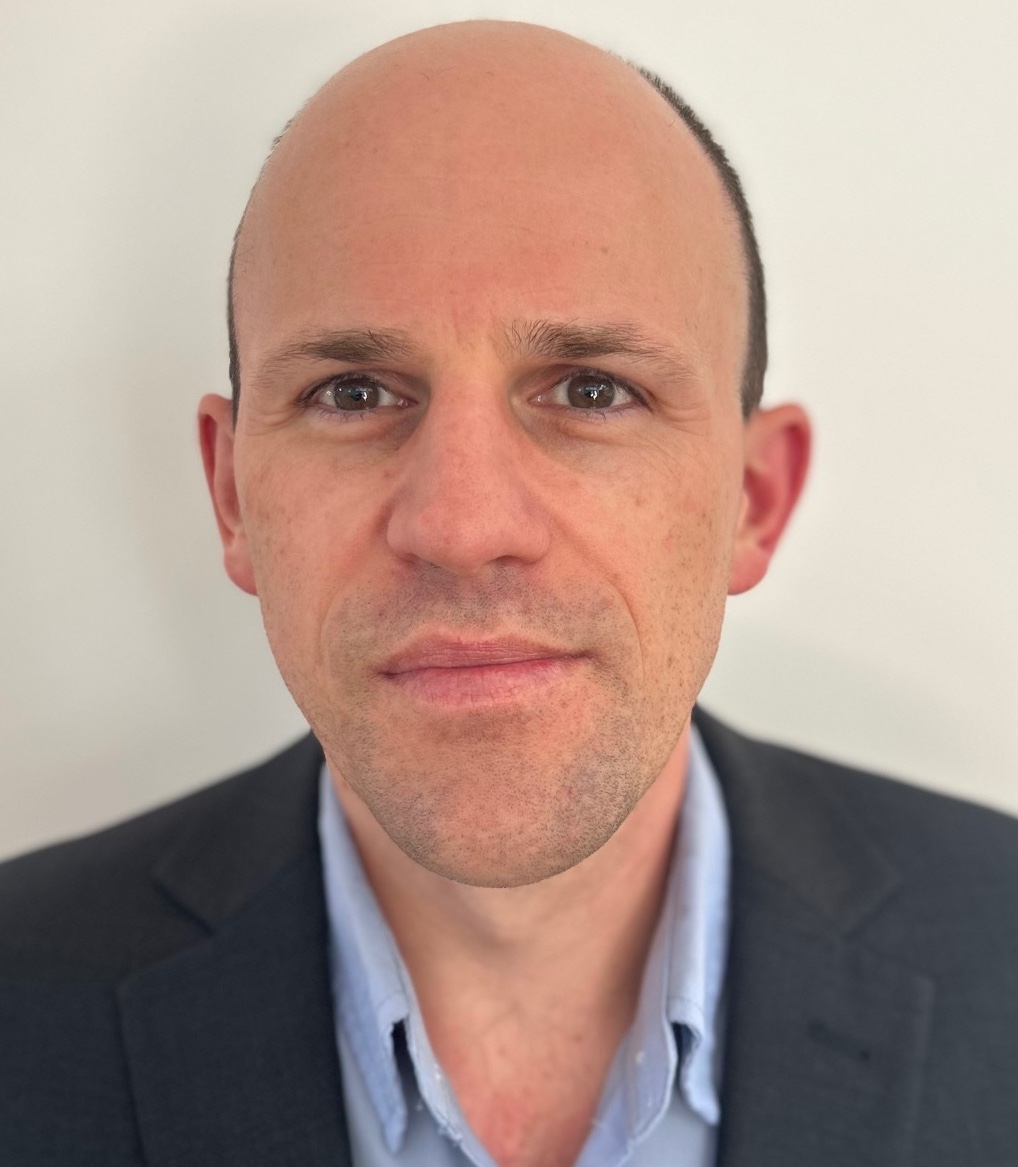
Michael Hildebrand, PhD
Professor Michael Hildebrand is a senior neurogenetics researcher who heads the Translational Neurogenetics Laboratory in the Epilepsy Research Centre, Melbourne Brain Centre. He was promoted to Professor of Medicine at The University of Melbourne in 2023 at age 42 years. Professor Hildebrand’s research program has resulted in major advances in the field of epilepsy through integrated research arms focused on solving developmental and epileptic encephalopathies, speech and language disorders, and trialling drug therapies for vascular malformations.
These discoveries have had clinical impact with new genetic diagnoses informing prognosis, genetic counselling, and targeted therapies. This includes many diagnostic findings for patients with severe speech disorders, work that has led to mouse models being examined with novel therapies prior to human studies. A major aim of Professor Hildebrand’s research is to understand genetic mechanisms underlying neurodevelopmental disorders including discovery of novel genetic mechanisms for PURA syndrome. He has served on the PURA Foundation Australia Scientific and Clinical Advisory Team since 2024 and was appointed Head of Research in 2025.
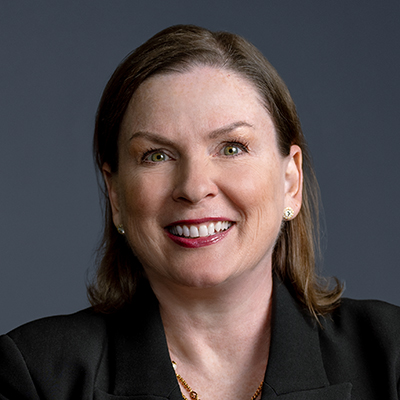
Joanna Horsnail
Joanna Horsnail is a partner in the global law firm Mayer Brown LLP and is the Chicago Office Managing Partner. Joanna’s law practice focuses on complex construction transactions and project and public finance. Joanna was a 2015 Fellow in Leadership Greater Chicago, was named by Women Influence and Power as a 2024 Managing Partner of the Year, was named a 2007 Women in Public Finance Woman of the Year Award and was named by Crain’s Chicago Business as one of the 2018 “Notable Women Lawyers in Chicago.”
Joanna serves on the Shirley Ryan AbilityLab Keystone Board and the Misericordia Women’s Board. She has previously served on the Board of Directors of the PURA Syndrome Foundation and was an interim Chair.
Joanna’s son William is 19 and was diagnosed with PURA syndrome in 2016. She also has an older son, Owen, who is 21 and a terrific big brother and caregiver for William.
Check out Joanna’s TEDx Talk: The Power of Time | Joanna Horsnail | TEDxOakParkWomen
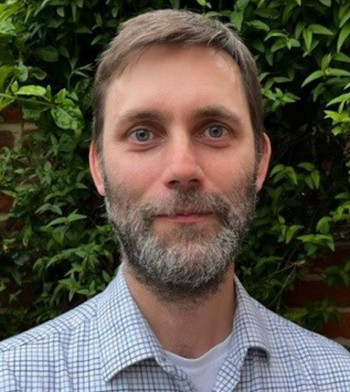
David Hunt, PhD
Dr. David Hunt is a Consultant Clinical Geneticist, based in Southampton, UK. He has been a member of the Wessex Clinical Genetics Service since 2012 and has been working as a consultant since 2016. He has an appointment as an Honorary Research Fellow at the University of Southampton.
Whilst an undergraduate in Medicine at St Bartholomew’s and the Royal London School of Medicine and Dentistry, he completed an intercalated bachelor’s degree in Biochemistry at University College London. He subsequently transferred to the MBPhD Programme at University College London and completed an intercalated PhD in Molecular Pathology.
Dr Hunt then completed his Foundation and Core Medical Training in London, before relocating to Southampton in 2012.
He has co-authored several peer-reviewed articles about PURA syndrome, including one of the first two papers characterising PURA Syndrome in October 2014. He was also involved in organising the first PURA Syndrome Annual Conference in the summer of 2015 and he continues to work closely with the PURA Syndrome Foundation.
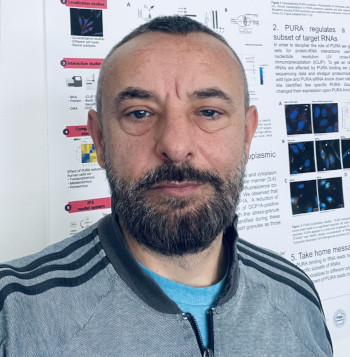
Robert Janowski, PhD
Dr. Robert Janowski obtained a Masters degree in Chemistry at the Adam Mickiewicz University in Poznan (Poland) as well as a Masters degree in Structural Biology at the Birkbeck College, University of London (UK). Afterwards he did his PhD in Chemistry at the Adam Mickiewicz University in Poznan (Poland). He is a staff scientist in the Institute of Structural Biology at the Helmholtz Center Munich (Germany). He is responsible for the X-ray Crystallization Platform where he investigates the three-dimensional models of the proteins and nucleic acids on the atomic level. He is particularly interested in the structural studies of human PURA, its mutants and their interactions with RNA.

Brian Jobin
Brian Jobin is a husband of six years and proud father to two amazing boys, Hudson and Brandon—my perfect PURA Syndrome baby—I find joy in family, food, cooking, gardening, and spending time outdoors. These passions keep me grounded and inspired every day. Professionally, I bring 25 years of diverse retail experience and currently lead as Director of the Vendor Management Office at SpartanNash, where I’ve thrived for over six years. I’m committed to building strong partnerships and driving lasting results.

Celena Lozano
Celena Lozano is a 4th year Neuroscience PhD candidate at the University of California, Davis. She received her B.S. in Neurobiology, Physiology and Behavior from UC Davis. She began graduate school studying the role of immune molecules in neurodevelopment and how their dysregulation contributes to neurodevelopmental disorders. After learning of her son’s PURA Syndrome diagnosis, she transitioned to a lab focused on developing gene therapies for rare genetic disorders. Celena is passionate about improving the lives of individuals with neurodevelopmental disabilities by strengthening science communication, education, and advocacy.

Mary Ann Morris, PhD, BCSE
Dr. Mary Ann Morris is the Psychometrician for the Neurodevelopmental Disabilities (NDD) clinic within the Center for Autism Care (CAC) at Children’s Health. Dr. Morris serves as the assessment specialist for patients and various research studies, as well as the educational consultant and liaison for patients and their families. She has co-authored a book on autism and has published numerous chapters and articles about various disabilities.
Dr. Morris was previously the Director of Diagnostics at The Winston School, a private school in Dallas for students with learning disabilities, ADHD and Autism. Additionally, she has been an adjunct professor in University of North Texas’s College of Educational Psychology. She has been the lead researcher in several research studies and has assisted in the norming of psychometric measures with multiple testing corporations.

Sarah Parks
Sarah Parks is a Significant Support Needs Teacher at the Cherry Creek School District in Colorado. She holds a Master’s Degree in Special Education (Generalist) from the University of Northern Colorado. With seven years of teaching experience in education, Sarah has worked with a diverse range of students, supporting individuals with complex learning needs. Deeply committed to fostering student growth and independence, she strives to empower each student to reach their full potential through tailored, compassionate support.
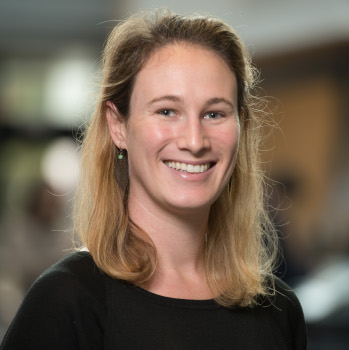
Kathryn Post DeMott, PhD
Kathryn Post DeMott is a Scientist at the non-for profit company Odylia Therapeutics. She is responsible for overseeing the science of all Odylia programs and is the lead of the Brydge Solutions program. Through the Brydge Solutions program she works with rare disease patient advocacy groups, academics and industry to accelerate drug development timelines, mitigate risks and optimize research investments.
Kathryn received her Bachelors in Neuroscience from Boston University and her PhD in Neuroscience from the University of British Columbia where she studied rare mutations associated with neurodevelopmental disorders. Following her PhD, she did a Post-Doctoral Fellowship at the Center for Rare Childhood Disorders at Translational Genomics in Phoenix, Arizona before joining Odylia as a Scientist. Over the last decade she has gained extensive experience working in the fields of neurodevelopment and neurodegeneration with a focus on genetics.

Michelle Rice
With 34 years of experience in healthcare policy and advocacy, Michelle Rice is a nationally recognized leader in driving collaborative solutions that enhance patient care and improve healthcare sustainability. As the CEO and Founder of Michelle Rice & Associates, LLC, she leverages her deep expertise to foster consensus among diverse stakeholders, including legislators, state regulators, clinicians, payers, patients, and the pharmaceutical industry.
Michelle is known for her solution-oriented approach, visionary leadership, and ability to cultivate open communication and mutual respect among key stakeholders. She is widely regarded as fair, trustworthy, and authentic, ensuring that all voices are heard in the advocacy and policymaking process.
Among her many accomplishments, Michelle spearheaded the development of a nationally recognized collaborative quality improvement and cost management initiative. This groundbreaking program advances the sustainability of the integrated comprehensive care treatment model for individuals affected by hemophilia and other bleeding disorders, setting a benchmark for innovative and effective healthcare solutions.
Through her work, Michelle continues to champion policies and initiatives that enhance healthcare access, quality, and affordability, making a lasting impact on patients and the broader healthcare landscape.
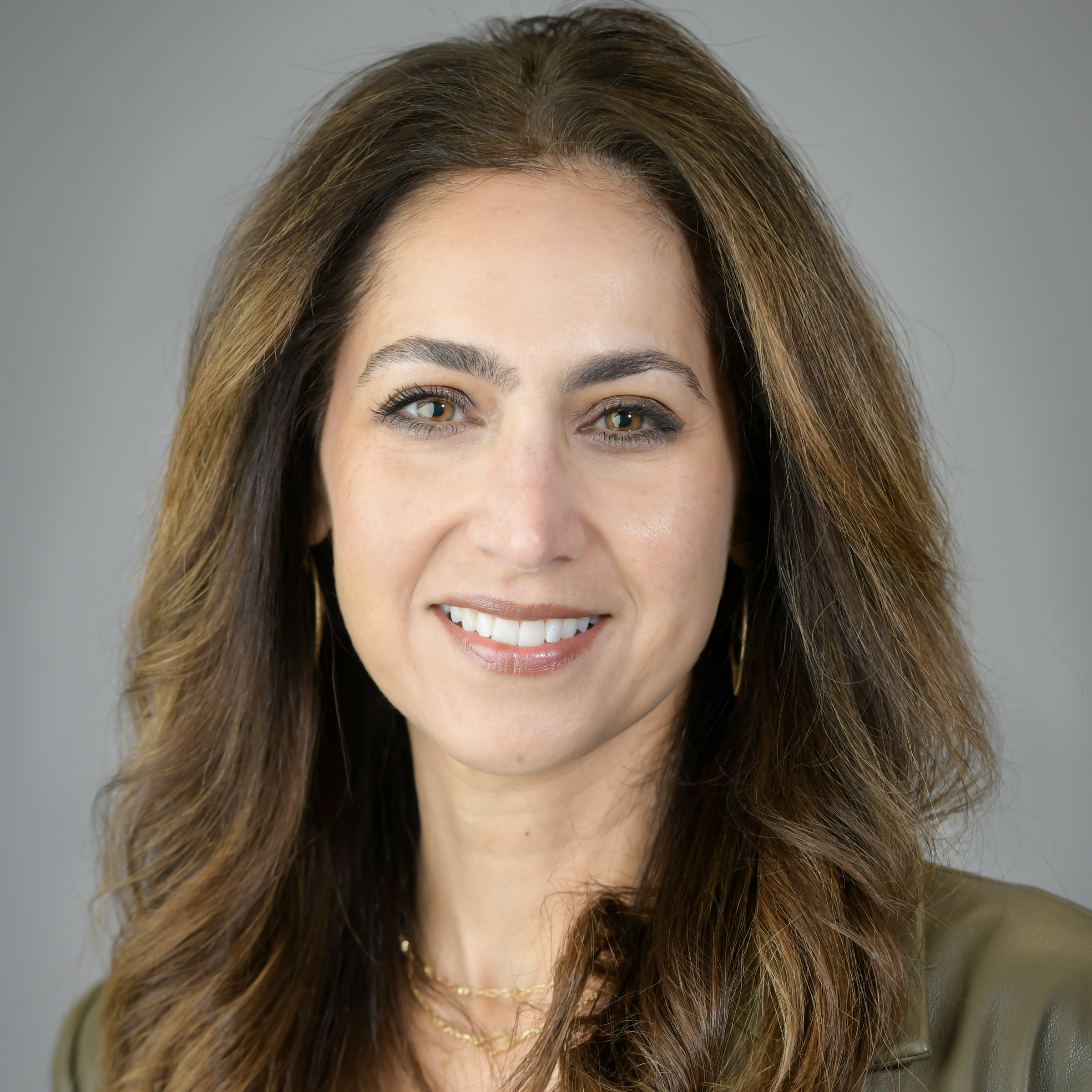
Rana R. Said, MD
Rana R. Said, M.D. FAAN is a Professor of Pediatrics and Neurology at the University of Texas Southwestern Medical Center in Dallas, Texas.
After graduating from the University of Jordan, Faculty of Medicine, in Amman, Jordan, she completed general pediatrics residency and then child neurology residency at Tufts University, Floating Hospital for Children in Boston, followed by a epilepsy and clinical neurophysiology fellowships at Children’s Hospital Boston, Harvard University.
She was the program director of the Child Neurology Residency program at UTSW for 20 years, transitioning out of this role in September 2024, and currently is the Director of Education for the Division of Pediatric Neurology. She has special expertise in the fields of pediatric epilepsy, infantile spasms, electrical status epilepticus of sleep, epilepsy surgery, status epilepticus and new onset status epilepticus, genetic epilepsies and the ketogenic diet. She is passionate about medical education, curriculum innovation and the recruitment of students into the field of child neurology. She is a sought out mentor across disciplines.
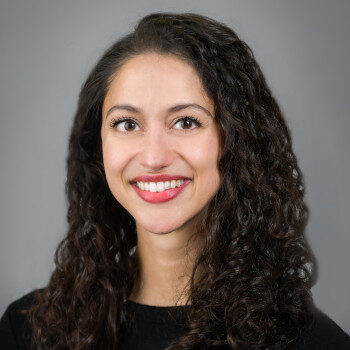
Lauren Dengle Sanchez, MD
Lauren Dengle Sanchez, M.D., is an Assistant Professor in the Departments of Pediatrics and Neurology at UT Southwestern Medical Center. She specializes in general child neurology and neuro-oncology.
After earning her medical degree at the UTHealth Houston McGovern Medical School, Dr. Sanchez completed residencies in Pediatrics and Child Neurology at UT Southwestern.
Certified by the American Board of Psychiatry and Neurology with a special qualification in child neurology, she joined the UT Southwestern faculty in 2014.
Among her other roles, Dr. Sanchez is the Program Director of the UT Southwestern Pediatric Neurology Residency program and a UT Southwestern medical student advisor. Clinically she has an emphasis on neurofibromatosis type 1 as well as neurodevelopmental syndromes including PURA syndrome.
In addition, she is a member of the American Academy of Neurology’s Consortium of Neurology Program Directors. In 2021, she was listed among D Magazine’s Best Doctors and Pediatric Specialists for Pediatric Neurology. She is also the mother of child with PURA Syndrome.
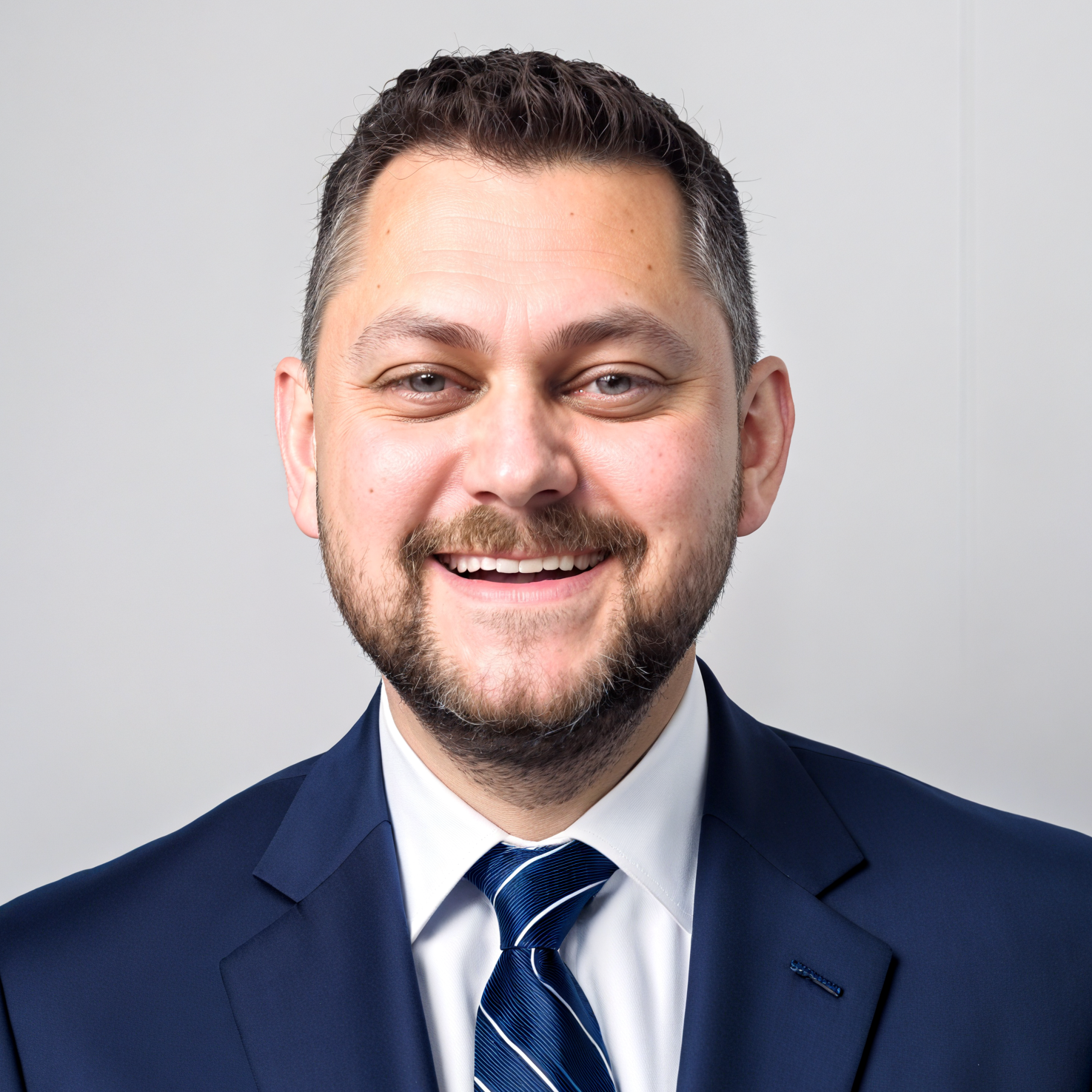
Chris Stafford
Chris Stafford lives with his family in Denver, Colorado. He and his wife, Megan, are the parents of one girl and two boys, including their 16 year old #PuraPerfect daughter, Lily. He is a devoted dad and partner and enjoys spending time with his family, being outdoors, and household DIY projects. He is active in the local special needs community and enjoys meeting and mentoring families on their own special needs journey. He has a Masters Degree in Organizational Leadership and works in the healthcare industry focusing on team development, technology implementation, project management, and operations.
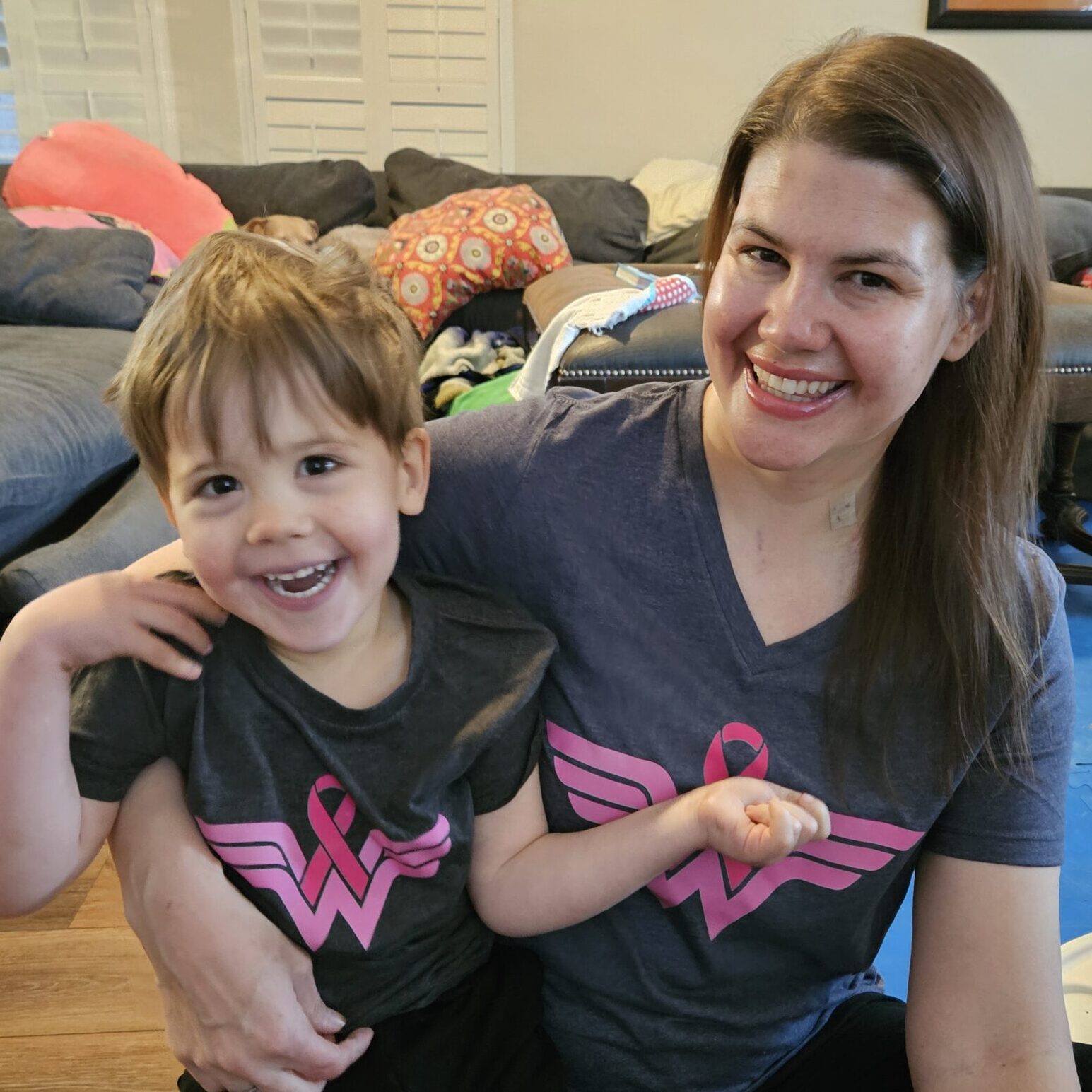
Audrey Wolfe
Audrey Drew Wolfe is a life long martial artist and martial arts instructor. She’s a former managing partner at Mezger Martial Arts and current Director of Operations of Mixed Martial Arts at Hidden Gym in Richardson, Texas. She has a 5th degree black belt in Chung do Kwon and a black belt in Brazlian Jiu-Jitsu. She was a Women’s National Golden Gloves Champion, Ringside World Boxing Champion, North American Grappling Association Expert Champion, International Brazilian Jiu-Jitsu Pan American Champion, Women’s Black Belt Lonestar Karate Champion, and formerly ranked #1 pound for pound female mixed martial artist in the state of Texas. Audrey’s greatest joy lies in the students she teaches. Audrey teaches men, women and children boxing, kickboxing, traditional martial arts, and Brazilian Jiu-Jitsu. She helped found a martial arts program for children in wheelchairs and also taught classes for the ARC of Dallas (a group that advocates for individuals with Intellectual disabilities). Audrey lives in Plano, TX with her husband, Joe, their PURA perfect son, Dax, and three resuce dogs.. They also have a daughter, Kyndell who just graduated college with a degree in Early Childhood Education. Dax was diagnosed with PURA Syndrome around 18 months of age. Audrey enjoys being part of the PURA family.

Melissa Vaught
Melissa Vaught is a dedicated advocate for rare disease, particularly PURA Syndrome. a condition affecting her daughter, Taylor. Melissa’s career began in communications, where she gained experience both behind and in front of the camera. After the birth of her daughter, she transitioned into real estate, working with a major developer in the Seattle area. There, she successfully managed the development of numerous residential projects.
Melissa eventually made the difficult decision to step away from her real estate career to become a full-time caregiver for Taylor. After Taylor’s eventual diagnosis at the age of 23, Melissa channeled her experience and expertise into supporting others in the rare disease community. She began volunteering with the PURA Syndrome Foundation, initially serving on the grants committee and then on the conference Committee. In 2023, Melissa was invited to join the Board of Directors.
Melissa is deeply committed to raising awareness and advancing research for PURA Syndrome. She lives in the Seattle area with her Husband Todd and daughter Taylor. Her son, TJ, is newly married to his wife Kaylen and Melissa is a proud grandmother to their daughter Campbell.

Jean Weinberg
Jean Weinberg began her career at CNN and has spanned various roles in communications from politics to public health. Prior to joining Bloomberg Philanthropies, she served as Chief Communications Officer for the New York City Housing Authority. In this role, she oversaw all resident, employee, and external communications. Ms. Weinberg previously served as Director of Public Affairs for the New York City Department of Health. During her tenure at the Health Department, she led the City’s media response for several major events including Hurricane Sandy, the City’s first Ebola case, and multiple Hepatitis A outbreaks. Before joining the Health Department, she worked in corporate communications for General Electric (GE). Prior to GE, Ms. Weinberg served in the Obama Administration as Press Secretary for the White House Office of Management and Budget. Earlier, Ms. Weinberg worked on Obama’s 2008 Presidential Campaign as the Regional Press Secretary in Missouri.
Ms. Weinberg earned a Bachelor of Arts degree in Government from Georgetown University.
